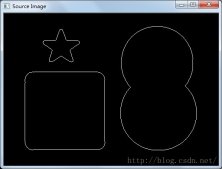关于UrlEncode的实现(C++)。网上有非常多不同的版本号。对须要编码的字符集的选取并不统一。那么究竟有没有标准呢?答案是有的。
绝对不编码的,仅仅有字母、数字、短横线(-)、下划线(_)、点(.)和波浪号(~),其它字符要视情况而定。所以一般性的urlencode仅仅需保留上述字符不进行编码。
以下给出实现:
|
1
2
3
4
5
6
7
8
9
10
11
12
13
14
15
16
17
18
19
20
21
22
23
24
25
26
27
28
29
30
31
32
33
34
35
36
37
38
39
40
41
42
43
44
45
46
47
48
49
50
51
52
53
54
55
56
57
|
unsigned char ToHex(unsigned char x) { return x > 9 ? x + 55 : x + 48; } unsigned char FromHex(unsigned char x) { unsigned char y; if (x >= 'A' && x <= 'Z') y = x - 'A' + 10; else if (x >= 'a' && x <= 'z') y = x - 'a' + 10; else if (x >= '0' && x <= '9') y = x - '0'; else assert(0); return y; } std::string UrlEncode(const std::string& str) { std::string strTemp = ""; size_t length = str.length(); for (size_t i = 0; i < length; i++) { if (isalnum((unsigned char)str[i]) || (str[i] == '-') || (str[i] == '_') || (str[i] == '.') || (str[i] == '~')) strTemp += str[i]; else if (str[i] == ' ') strTemp += "+"; else { strTemp += '%'; strTemp += ToHex((unsigned char)str[i] >> 4); strTemp += ToHex((unsigned char)str[i] % 16); } } return strTemp; } std::string UrlDecode(const std::string& str) { std::string strTemp = ""; size_t length = str.length(); for (size_t i = 0; i < length; i++) { if (str[i] == '+') strTemp += ' '; else if (str[i] == '%') { assert(i + 2 < length); unsigned char high = FromHex((unsigned char)str[++i]); unsigned char low = FromHex((unsigned char)str[++i]); strTemp += high*16 + low; } else strTemp += str[i]; } return strTemp; } |
补充知识:C++中URL解码/编码
我就废话不多说了,大家还是直接看代码吧~
|
1
2
3
4
5
6
7
8
9
10
11
12
13
14
15
16
17
18
19
20
21
22
23
24
25
26
27
28
29
30
31
32
33
34
35
36
37
38
39
40
41
42
43
44
45
46
47
48
49
50
51
52
53
54
55
56
57
58
59
60
61
62
63
64
65
66
67
68
69
70
71
72
73
74
75
76
77
|
#include <iostream> #include <string>using namespace std; char dec2hexChar(short int n) { if (0 <= n && n <= 9) { return char(short('0') + n); } else if (10 <= n && n <= 15) { return char(short('A') + n - 10); } else { return char(0); }} short int hexChar2dec(char c) { if ('0' <= c && c <= '9') { return short(c - '0'); } else if ('a' <= c && c <= 'f') { return (short(c - 'a') + 10); } else if ('A' <= c && c <= 'F') { return (short(c - 'A') + 10); } else { return -1; }} string escapeURL(const string& URL){ string result = ""; for (unsigned int i = 0; i < URL.length(); i++) { char c = URL[i]; if ( ('0' <= c && c <= '9') || ('a' <= c && c <= 'z') || ('A' <= c && c <= 'Z') || c == '/' || c == '.' ) { result += c; } else { int j = (short int)c; if (j < 0) { j += 256; } int i1, i0; i1 = j / 16; i0 = j - i1 * 16; result += '%'; result += dec2hexChar(i1); result += dec2hexChar(i0); } } return result;} string deescapeURL(const string& URL) { string result = ""; for (unsigned int i = 0; i < URL.length(); i++) { char c = URL[i]; if (c != '%') { result += c; } else { char c1 = URL[++i]; char c0 = URL[++i]; int num = 0; num += hexChar2dec(c1) * 16 + hexChar2dec(c0); result += char(num); } } return result;} |
以上这篇C++ 写的UrlEncode和UrlDecode实例就是小编分享给大家的全部内容了,希望能给大家一个参考,也希望大家多多支持服务器之家。
原文链接:https://www.cnblogs.com/claireyuancy/p/6915447.html














